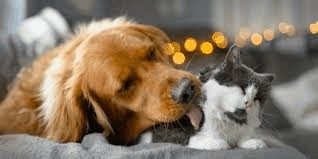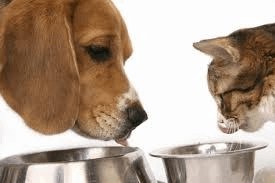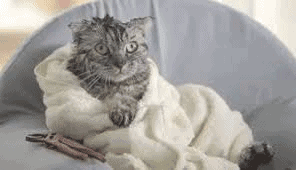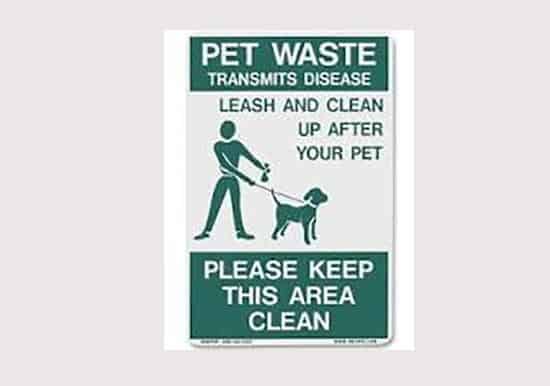
We can’t predict certain things, they’re just out of our control. But there are basics we can follow involving vaccinating, a good diet, exercise and a clean temperature-appropriate environment that will help keep your pet in good health.
There are other precautions we can take to prevent them from serious but common issues such as keeping electric cords tucked away, avoiding choking hazards, not letting pets off-leash unless in a securely fenced in and monitored enviroment and more…
Nutrition and Feeding

Good nutrition is essential for a healthy pet. Nutrients in pet foods should provide what is needed for metabolic body processes and should help fight off disease.
Proper feeding habits with nutritious food on a regular schedule can prevent:
- Disease
- Nutritional deficiencies
- Irritation or malfunction of the digestive system
Improper feeding habits can cause or contribute to:
- Obesity
- Dental disease
- Heart disease
- Liver disease
- Pancreatitis
- Arthritis
- Inflammation and/or bleeding in the intestines
Many animals die each year from such diseases. Avoid table scraps, high fat foods, and foods that cause choking. Your pets should be offered foods developed for them or recommended by your veterinarian.
Provide Plenty of Clean Water
All animals, especially the very young and the very old, are susceptible to dehydration and kidney disease if deprived of water, quickly leading to serious complications.
Nutritious food and clean, fresh water are important to your pet’s health!
Avoid Vigorous Exercise after Meals
Vigorous exercise after meals can lead to a life-threatening condition in certain dog breeds called bloat, while all dogs can be affected, large and deep-cheated dogs are affected more frequently.
Safe Environment
Unsafe situations may occur in your pet’s surroundings, even with animals who are confined to the house or an outside run. A responsible pet owner should always have control of their pet and their pet’s environment. Injury or death after being hit by a car or being attacked by another animal can be prevented if your pet is properly controlled. Your pet may be injured or shot if allowed to wander unrestricted. Controlling your pet and providing a safe home can eliminate several dangerous situations.
Temperature

Animals have more problems in hot environments than in cold. Pets can suffer heat prostration and die in a short period of time, even minutes, under severe conditions. Good ventilation is vital. Animals cool themselves by panting, which becomes inefficient in extreme heat, poor ventilation, or when dehydration causes a lack of moisture on the tongue. If it is absolutely necessary to leave your pet in the car, even for a short time, keep the windows partially open. In the summer, the car’s interior can quickly rise to over 150°F, and your pet’s body temperature may rise to 110°F or more, causing irreversible brain damage and/or death within minutes.
Exercise
Your pets need room to move around safely to get exercise. Provide an area with adequate room, shelter, and bedding that can be cleaned. Lots of space to exercise, some toys, and clean, comfortable bedding are some simple things that can add years to your pet’s life.
Leash Choking
Confinement created by a chain tied to a post or a cable can result in death by suffocation if the chain becomes too tightly wrapped around the post or around your pet’s neck.
Proper Identification
Remember to have ID on your animal; people will usually return your pet if your phone number is provided. Also, if your animal is injured and transported to a veterinarian by someone else, the doctor can reach you for medical decisions.
Proper identification tags and/or microchips will help you recover your pet if he wanders off.
Electric Cords
Electric cords should be inaccessible to pets, especially puppies and kittens, who tend to chew on anything. A bite through the insulation can result in a serious burn, fluid accumulation in the lungs, or death (see electrocution).
Dangling electric cords are an irresistible (but dangerous) temptation to a playful kitten or puppy. Make sure all cords are inaccessible!
Choking
Many common household items can cause your pet to choke:
- String
- Needles and thread
- Hosiery
- Garbage
- Balls
- Yarn
- Socks
- Bones
- Gristle
- Small toys
These items should be kept away from pets, as ingesting them may cause foreign body blockages or injuries to the esophagus, stomach or small intestine. Make sure that small household items are kept in a place that your pets can’t reach!
Poisoning
Accidental poisonings can be tragic. Guard against ingestion of:
- Garden supplies, such as insecticides, fertilizers, and snail bait.
- Poisonous plants: Many plants in live or dried forms are toxic. Even food items like dried onions can cause problems in pets. Discuss potential problems with your veterinarian or check with the nursery or a more complete reference before buying plants.
- Pennies can contain zinc, which can cause vomiting, anemia, and even death if ingested.
- Chocolate: As little as one ounce of unsweetened (baker’s) chocolate may poison a small dog. Milk chocolate isn’t as toxic, and if ingested in reasonable quantities there is no cause for alarm. Many dogs, however, ingest unreasonable quantities and may be poisoned.
- Antifreeze has a sweet taste to dogs and cats, and they may lick it off the ground. As little as one teaspoonful (easily available from a radiator boil over) can lead to irreversible kidney damage and death in a small dog or cat.
- Medications: Some medications that are safe for us are not safe for pets: Tylenol (acetaminophen) is deadly poison to cats; No-Doz may cause convulsions in both cats and dogs; Solarcaine may cause anemia in cats; Advil (ibuprofen) may cause kidney damage or gastric ulcers in dogs.
Ask a professional before administering drugs of any kind to your pet.
Traveling

Animals must be contained while riding in a car or truck. Cats jump out of cars quickly. Put them in well-ventilated pet boxes. Dogs can be trained to a seat belt. We recommend that dogs not ride in the back of trucks. In some states it is illegal for a dog to ride in the back of a pick-up truck without tethers. Besides the risk of injury from a fall, the dog may be killed in traffic. Even properly tethered dogs have little protection in the event of an accident.
If your dog must travel in the back of a pick-up, then he should be securely tethered in.
Regular Veterinary Check-Ups
Regular veterinary examinations will help avoid some preventable disease problems and permit early detection of others, thus facilitating treatment. Your pet should be seen by your veterinarian at least once a year. During the check-up regular vaccinations are given and the animal is given a physical exam, a dental check-up, and teeth cleaning.
Your pet’s annual physical examination is vital for continued good health.
Vaccination Programs
Many dangerous infectious diseases can be prevented or lessened in severity with a proper vaccination program. No vaccine is 100% effective, but regular vaccinations are the most effective way to prevent such diseases.
Approved vaccines are available for the following diseases:
Dogs:
- Rabies
- Distemper
- Adenovirus (hepatitis virus)
- Parvoviral enteritis
- Coronaviral enteritis
- Leptospirosis
- Parainfluenza/Bordetella
- Lyme disease – only in endemic areas
Cats:
- Rabies
- Panleukopenia
- Rhinotracheitis
- Calicivirus pneumonitis
- Feline leukemia virus – for cats that go outside or live with cats that go outside
With so many formerly deadly diseases now preventable by vaccination, you owe it to your dog or cat to make sure she is up on her booster shots. Consult your veterinarian for the vaccines needed in your area and a proper vaccination schedule.
Dental Health
Dental problems that go untreated not only cause problems in the teeth and gums, but their effects may extend to other areas of the body.
- Infections from decaying teeth may spread directly to the sinus cavities or the eyes.
- Bacteria from dental infections and/or plaque accumulation may spread to the heart, liver, kidneys, or other organs.
Good oral hygiene and regular veterinary examination and treatment can eliminate dental problems.
Dental health and good overall health go hand in hand.
Prevention: A Final Note
Seek professional veterinary help immediately if your pet suffers an accident or illness. Getting help early prevents complications and more suffering. Waiting can only result in undue worry, serious deterioration of conditions, and make recovery more difficult.

